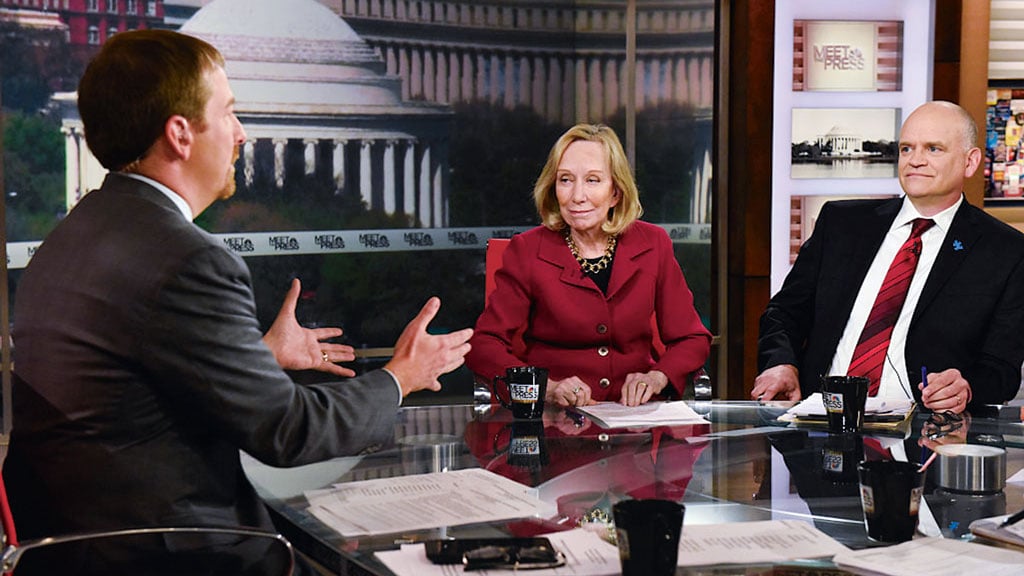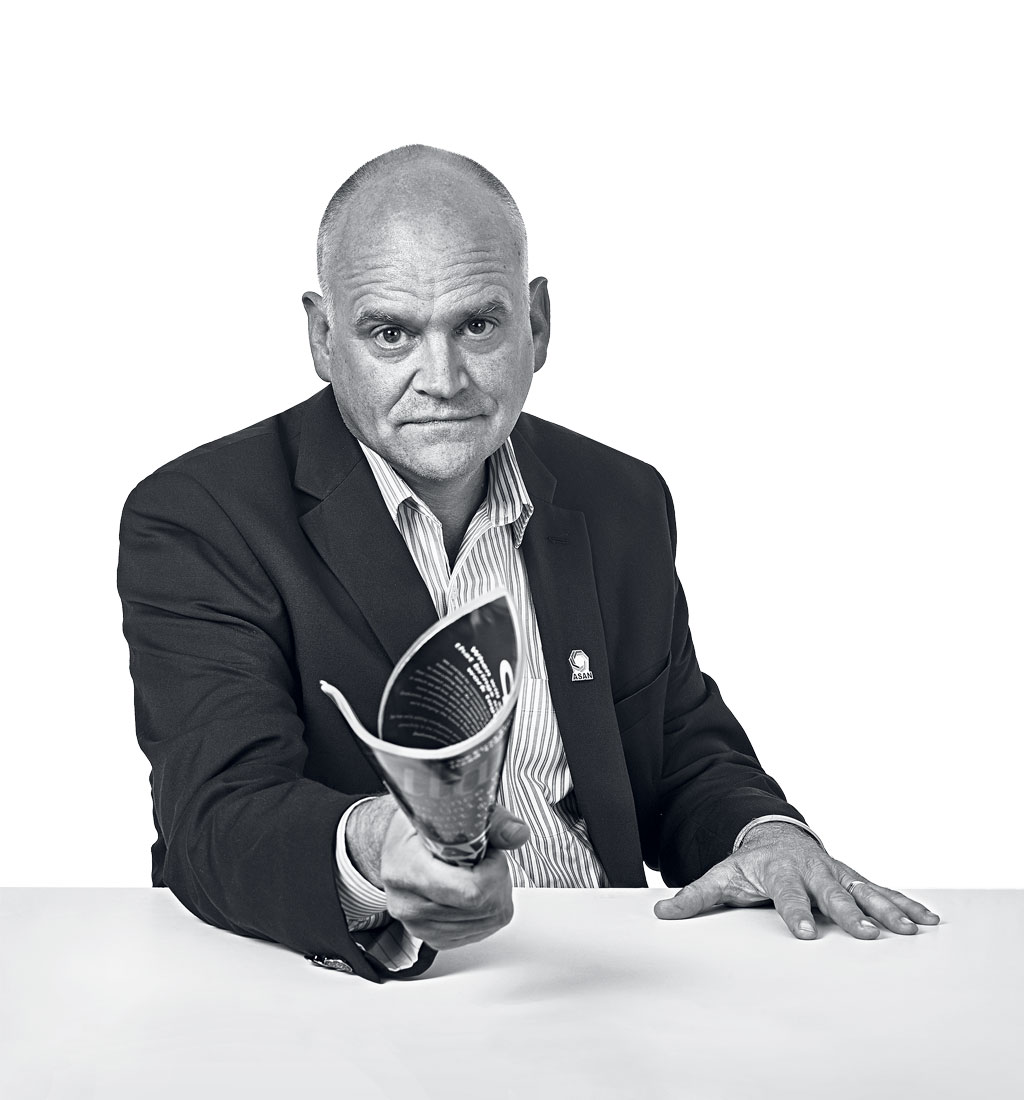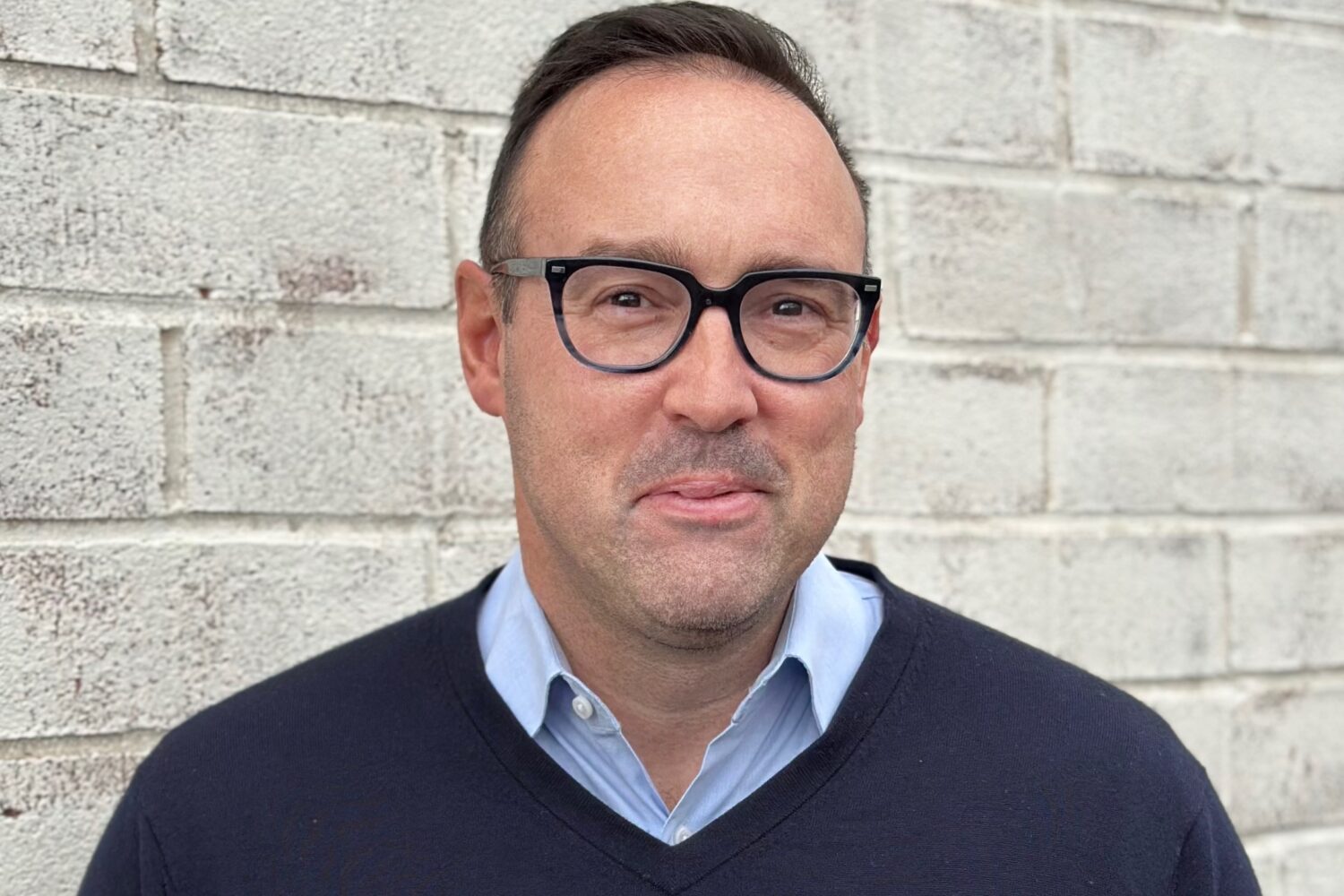When National Journal political columnist Ron Fournier announced in August that he planned to leave Washington to become associate publisher of Crain’s Detroit Business, he didn’t sound like he’d miss his home of 23 years too much. “The bulk of my work in Washington has been focused on political corruption, dysfunction, and decay,” he wrote. “The real news in Detroit is revival and reinvention.”
As a pundit, Fournier has been a relentless critic of Washington. But his CV is actually pretty classic Beltway material. He worked his way up through small towns and a state capitol before riding east on the coattails of a new President—Bill Clinton, whom he’d covered in Little Rock. Even Fournier’s posture as a regular guy from Michigan seems par for the course in a city of bigwigs who loudly announce that they’re not from here and present their distant roots as evidence that they’re uniquely able to be honest and true.
That latter quality, of course, tended to drive critics insane as Fournier ascended to the Washington establishment. For a time, he was the subject of a parody Twitter account that mocked his both-sides-do-it centrism and his obsession with leadership. As he put Washington in the rear-view mirror, we asked Fournier about the critics—and whether he’ll miss the city he called home for two decades.
You’ve written about your dismay with the stagnation in Washington. You’ve been here a long time—were things ever better?
Well, like most political observers, I see this as something that’s been evolving for a while and just intensifying. The causes are innumerable and don’t all come at the same point. Things like the scientification of redistricting, the zero-sum game of politics—a lot of that started in the late ’90s. A couple years before that, you had Newt Gingrich taking power and pushing the fact that lawmakers should go back home and not live in Washington, which has led to a lot of people saying—and I agree—there’s less comity in Congress. That began in ’94, ’95. And then you had [Bill Clinton’s] impeachment, which was a constitutional crisis that became hyper-politicized. Then in 2000 with the recount, where you had one party that thought the election was stolen from them. So it’s hard to pinpoint, but basically my whole career here, it’s gotten more toxic, more polarized, less productive.
Even the relationships that reporters have with sources and people they cover has become more distant—it’s harder to understand the people you’re covering, get to know them—and more combative. Reporters are far quicker to shout at and have angry conversations with the people they cover, and vice versa. There’s a combativeness that’s now bred into and taught to PR people that wasn’t as prevalent a few years ago.
What I find interesting in critiques about Washington versus “real America,” though, is that “real America” is responsible for sending people to Washington with the expectation that they’ll frustrate one another. Do you think “real America” bears responsibility for the gridlock here?
Well, yeah, because we are responsible for the people we elect. We’re also capable of blowing all that up and changing it. A lot of the changes we’re seeing—look at Trump and Bernie Sanders. That kind of disruption. Some of it is positive, some of it is very negative and scary. But we’re also empowered more than any Americans in the history of the country, because of the new technologies, to bring about positive change. It’s really easy in Washington to get sucked into the belief that we’ll never stop circling the sewer, because all you see in Washington is sewage.
Washington is traditionally a place where people come to make a difference, but if I hear you right, you would encourage people to think about not coming here, to stay where they are and try to make a difference?
I wouldn’t talk any young congressman like Joe Kennedy or Elise Stefanik into leaving Congress—they’re the kind of people who could make change to this place. One’s a Democrat, one’s a Republican, by the way. Millennials. I wouldn’t talk any journalists out of following their dreams to Washington and trying to find new ways to break through and speak truth to power and make money off of doing that. I just know that Washington isn’t the only place to do good public service and good journalism. I just know personally that my butt belongs in Detroit. So this isn’t an anti-Washington thing—it’s an I-gotta-get-home thing.
You’ve been very critical of President Obama’s inability to get others in Washington to soften their positions and get things done. But many people with strong beliefs come here to make a difference, and sometimes their disagreements are so profound that they result in stasis. Does focusing on leadership obscure deeper questions about what is right, what makes good policy?
I agree. Most politicians and political people do come to serve. I admire the intent. It’s their job to work together and solve big problems—and to shape the political system to the times, leaving it more relevant and trusted than when they found it. If all they do—even with the best intentions—is sharpen their binary arguments within a system of stasis, they’ve failed. They have not led.
You’ve lived in Arlington for a couple of decades. All this stuff aside, it sounds like it’s been a good place for you.
Yeah, I don’t want to diminish Arlington or even DC as a place to live and to raise a family. We’ve got incredibly good friends I’m going to miss terribly, and the kids have had a great education and love this area.

You mentioned reporters and flacks fighting. How do you keep such equanimity on Twitter? People really go after you, and you’re so nice in return.
This business, journalism, is really about relationships. I’ve got sources who go back 25, 30 years. Who I have written nasty stuff about. But I can still get them on the phone. We can still do business together. That’s something I learned a long time ago how to do in the real world. It just kind of translated onto Twitter. So I try to be fair, I try to be transparent, I try to be objective, but I try to be polite. Being polite almost always is a better way to get information out of people and build a relationship than being an asshole.
I tell people: If we build a relationship and I trust you, I will never stab you in the back. I will, however, stab you in the chest. But you will see it coming—you’ll get a chance to respond to the story. People appreciate that if you’re willing to listen and be polite to them and hear them out and give their side as fair of a deal as you can. But at the end of the day, I’ve got to call balls and strikes and sometimes throw a fastball at somebody’s head.
When you took over the AP’s Washington bureau in 2008, that was something you talked about—calling balls and strikes. That was a big change for a news organization that strenuously avoided being seen as taking sides.
Yeah, just get to the heart of the matter. When I think Hillary Clinton isn’t telling the truth on e-mail, when I think Donald Trump is inciting violence, I’m going to say Hillary Clinton’s lying and Donald Trump is inciting violence. Period. I’m going to back it up, but I’m not going to hedge it.
But inciting political violence and lying about e-mail aren’t equivalent. By saying both sides are doing bad things—
Well, you know what? Both sides are doing bad things. So to say both sides are doing bad things is the truth. To say both sides are equally bad is a false equivalence. Because rarely in life or in politics or in journalism are things equal. Oftentimes you’ll see partisans use false equivalence as a dodge of responsibility.
Does covering Trump make that kind of judgment more difficult?
No, it makes it easier. Covering Donald Trump would be hard if you thought your job was to report on equivalences. If you thought your job was to always pretend that one side is just as wrong as the other side, it would be very hard to cover Donald Trump. But if your job is to get to the truth and to speak truth to power, Donald Trump is the easiest thing you’ll ever do in journalism. And maybe the most fun.
Are your friends journalists? Involved in politics?
No, our friends are almost all out of politics. The funny thing is I never wanted to be a political journalist. When I was assigned to the political beat in Arkansas, I just did it because they were going to pay me $5 more a week. Even to this day, I don’t consider myself a political junkie. What I know about politics I’ve found out as part of my job, not because I grew up reading the Political Almanac like a lot of people I compete against. I don’t like to talk about politics when I’m home.
I know sportswriters who hate sports.
I do want to be clear: I could keep doing this. It’s a great job. I love what I’m doing. I’m not leaving because I’m burned out on the beat. I’m not burned out on Washington or Arlington.
And your critique of Washington is really a metonym. It’s not this place.
Right. I’m glad you picked up on that. I love this place. I love the fact that I raised my kids here. I flew in the other day, and I was coming up the river and I was on the left side of the plane, I was able to look at the monuments—man, I’ve been so lucky to live here. Like most Americans, I’m really down on the political system right now. I really think it needs to change dramatically. I really think, like most Americans, that we need change in the worst way, and like a lot of Americans, I do think Donald Trump would be the worst way. But I’m not quitting the beat, I’m not quitting Washington. I’m just moving back home.
This article appears in our October 2016 issue of Washingtonian.



















